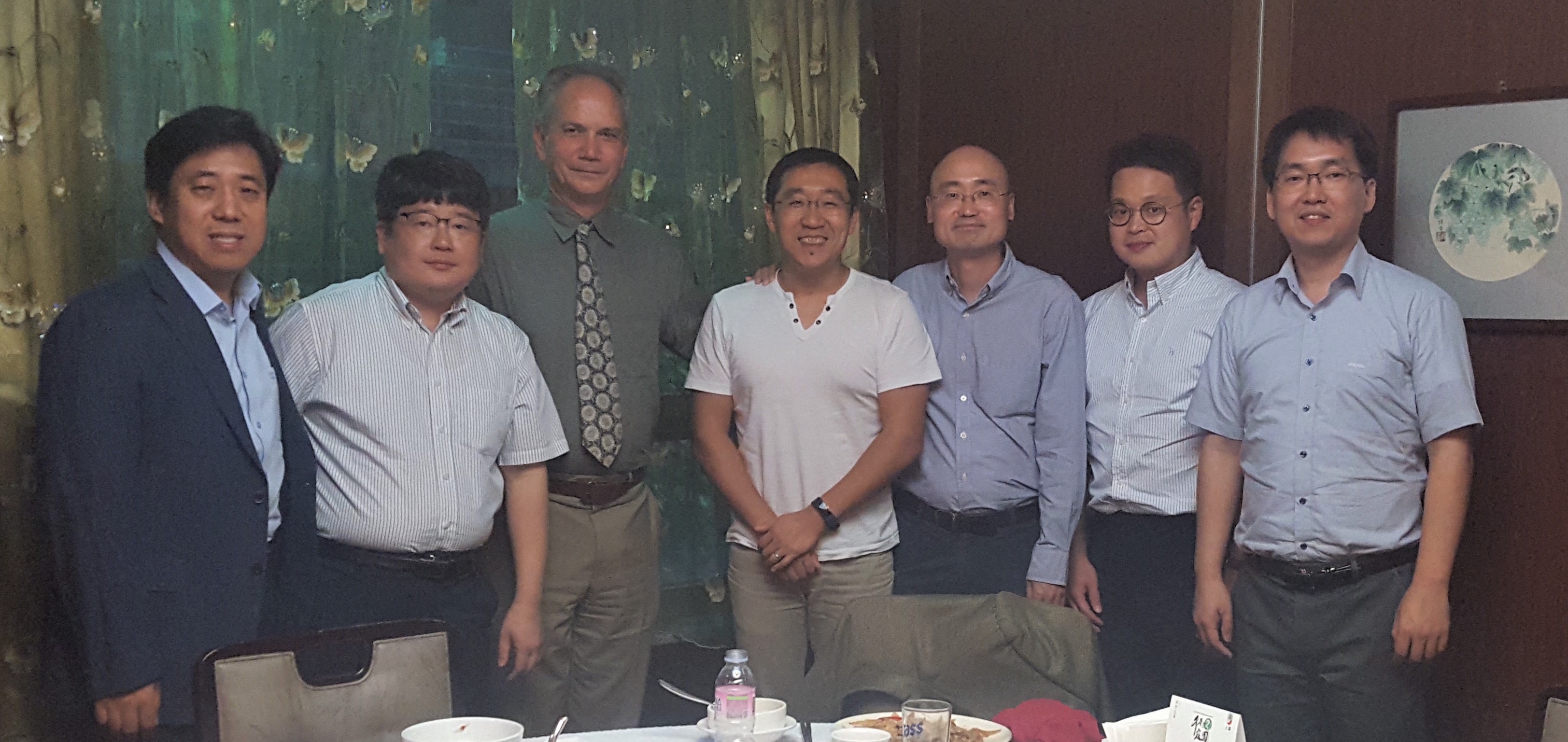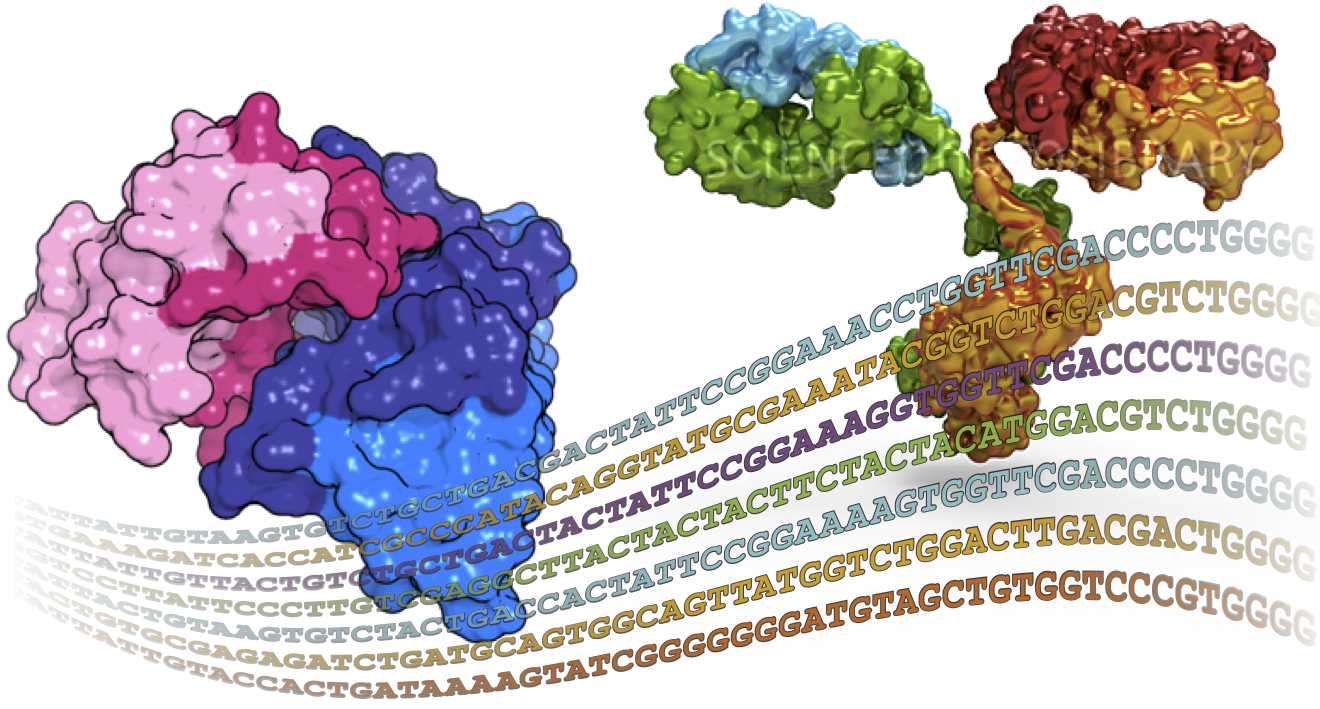Dr. Georgiou was selected to deliver the Prestigious 2017 Global Distinguished Lecture in the Department of Chemical and Biomolecular Engineering at KAIST.
His lecture Discovery, Preclinical and Clinical Development of Therapeutic Treatment for Cancer Therapy focused on the pioneering methods he has developed to engineer therapeutic enzymes capable of degrading specific amino acids related to disease pathology, studies that have led to one protein therapeutic that is currently being evaluated in 3 Phase I clinical trials and two preclinical stage therapeutics that will enter human trials in 2018. In addition, he discussed his development of improved therapeutic antibodies that have been engineered for enhanced killing of target pathogenic cells and other properties that are critical for the pharmacology of antibody drugs.
His lecture What’s in your Blood? Molecular Analysis of the Serum Antibody Repertoire for Developing Better Vaccines and Therapeutics discussed the diverse ensemble of antibody proteins (immunoglobulins) that circulate in all physiological fluids and play a central role in protection against disease. His lab has developed an integrated technology workflow that combines high mass accuracy LC-MS/MS proteomics, with microfluidics and bioinformatics tools for the molecular-level deconvolution of the identities, relative amounts and functions of antibodies in human blood and also for the delineation of the relationships between antibody production and the relevant B cell immunological mechanisms.
About “The KAIST CBE Global Distinguished Lectureship”
The Department of Chemical and Biomolecular Engineering at KAIST proudly presents the 7th KAIST CBE Global Distinguished Lectureship series. The lectureship is an annual event in which an internationally leading researcher in chemical and biomolecular engineering at a foreign institution is selected and invited to give a series of lectures. The lectures are open to students and faculty as well as alumni and friends. The visiting lecturer, in addition to giving the seminars on recent trends and advances in his / her field is asked to participate in informal discussions with KAIST faculty and students.
Previous lecturers include Bill Koros (GT), Manfred Morari (ETH), Gregory Stephanopoulos (MIT), Rakesh Agrawal (Purdue), and Ignacio Grossmann (CMU).
While visiting Korea, Dr. Georgiou was delighted to reconnect with several Georgiou Lab Alumni.

Left to Right: Assoc. Prof. Ki Jun Jeong (KAIST), Assoc. Prof. Tae Hyeon Yoo (Ajou Univ.), Dr. George Georgiou, Asst. Prof. Xin Ge (UC Riverside), Assoc. Prof. Sang Taek Jung (Kookmin Univ.), Dr. Tae Hyun Kang (Sr. Researcher, CJ HealthCare), Dr. Daechan Park (Sr. Research Scientist, KIST).



Dr. Everett Stone Named Emerging Inventor of the Year
/in News /by labadminCongratulations to Dr. Everett Stone, Emerging Inventor of the Year!
On November 2, 2017, the UT Austin Office of Technology Commercialization hosted the 7th Annual Inventor Award Ceremony & Reception. The prestigious Inventor of the Year Award, honors a researcher whose discoveries have made a significant impact, and the Emerging Inventor of the Year Award, acknowledges a researcher who has made substantial contributions early in their career.
https://cns.utexas.edu/news/stone-named-emerging-innovator-of-the-year?
Undergraduate Researcher Justin Mirazee wins a Fall Undergraduate Research Symposium Best Presentation Award!
/in News /by labadminCongratulations to Undergraduate Researcher Justin Mirazee who recently won the Fall Undergraduate Research Symposium Award for Best Presentation in his Session. Justin is working with Graduate Researcher Wissam Charab and Undergraduate Researcher Matthew Rosenbeger.
The Fall Undergraduate Research Symposium is a chance for students to present a highlight reel of their research at UT to underscore the importance of academic involvement for undergraduates.
Dr. Georgiou Delivers Prestigious Global Distinguished Lecture at KAIST
/in News /by labadminDr. Georgiou was selected to deliver the Prestigious 2017 Global Distinguished Lecture in the Department of Chemical and Biomolecular Engineering at KAIST.
His lecture Discovery, Preclinical and Clinical Development of Therapeutic Treatment for Cancer Therapy focused on the pioneering methods he has developed to engineer therapeutic enzymes capable of degrading specific amino acids related to disease pathology, studies that have led to one protein therapeutic that is currently being evaluated in 3 Phase I clinical trials and two preclinical stage therapeutics that will enter human trials in 2018. In addition, he discussed his development of improved therapeutic antibodies that have been engineered for enhanced killing of target pathogenic cells and other properties that are critical for the pharmacology of antibody drugs.
His lecture What’s in your Blood? Molecular Analysis of the Serum Antibody Repertoire for Developing Better Vaccines and Therapeutics discussed the diverse ensemble of antibody proteins (immunoglobulins) that circulate in all physiological fluids and play a central role in protection against disease. His lab has developed an integrated technology workflow that combines high mass accuracy LC-MS/MS proteomics, with microfluidics and bioinformatics tools for the molecular-level deconvolution of the identities, relative amounts and functions of antibodies in human blood and also for the delineation of the relationships between antibody production and the relevant B cell immunological mechanisms.
About “The KAIST CBE Global Distinguished Lectureship”
The Department of Chemical and Biomolecular Engineering at KAIST proudly presents the 7th KAIST CBE Global Distinguished Lectureship series. The lectureship is an annual event in which an internationally leading researcher in chemical and biomolecular engineering at a foreign institution is selected and invited to give a series of lectures. The lectures are open to students and faculty as well as alumni and friends. The visiting lecturer, in addition to giving the seminars on recent trends and advances in his / her field is asked to participate in informal discussions with KAIST faculty and students.
Previous lecturers include Bill Koros (GT), Manfred Morari (ETH), Gregory Stephanopoulos (MIT), Rakesh Agrawal (Purdue), and Ignacio Grossmann (CMU).
While visiting Korea, Dr. Georgiou was delighted to reconnect with several Georgiou Lab Alumni.

Left to Right: Assoc. Prof. Ki Jun Jeong (KAIST), Assoc. Prof. Tae Hyeon Yoo (Ajou Univ.), Dr. George Georgiou, Asst. Prof. Xin Ge (UC Riverside), Assoc. Prof. Sang Taek Jung (Kookmin Univ.), Dr. Tae Hyun Kang (Sr. Researcher, CJ HealthCare), Dr. Daechan Park (Sr. Research Scientist, KIST).
Undergraduate Researcher Anirudh placed in the top 3 of his division in the SEC PEER Poster Exhibition
/in News /by labadminAnirudh is a third-year undergraduate working in Dr. John Blazeck’s team to engineer an enzyme for a cancer immunotherapy. He placed first among upperclassmen in the annual Student Engineering Council Poster Exhibition on Engineering Research. His poster, titled “Directed evolution of an enzyme to fight cancer immune suppression,” outlines the team’s protein engineering techniques to develop a protein to degrade kynurenine, an immunosuppressive molecule synthesized by 11+ types of cancer.
Congratulations, Anirudh!
Undergraduate Researcher Soumya Shekhar is awarded a 2017 Undergraduate Research Forum Award for Excellence in Cancer Research
/in News /by labadminEvery Spring, the college celebrates its student-scientists at this one-day event. More than 200 students present posters describing their research. The best and most innovative posters and presentations are recognized with awards judged and sponsored by the university, faculty, alumni and industry.
Congratulations, Soumya!
Graduate Researcher Matthew Bonem has been awarded the Helmsley Fellowship to attend the Cold Spring Harbor Metabolomics course this summer. Congratulations, Matthew!
/in News /by labadminFounded in 1890, Cold Spring Harbor Laboratory has shaped contemporary biomedical research and education with programs in cancer, neuroscience, plant biology and quantitative biology. Home to eight Nobel Prize winners, the private, not-for-profit Laboratory employs 1,100 people including 600 scientists, students and technicians. The Meetings & Courses Program hosts more than 12,000 scientists from around the world each year on its campuses in Long Island and in Suzhou, China. The Laboratory’s education arm also includes an academic publishing house, a graduate school and programs for middle and high school students and teachers.
Current Group Members
/in /by labadminNorah Ashoura Wins the Science in Plain English Contest! Congratulations, Norah!
/in News /by adminGraduate Researcher Norah Ashoura wins the Science in Plain English contest, sponsored by UT’s Science Communications Interest Group, by giving remarks comparing cancer to Darth Vader and the hapless immune system to Jedi Knights in the Star Wars universe. She won a trip to one of the largest gatherings of scientists, which is happening this week, the annual meeting for the American Association for the Advancement of Science (AAAS).
https://cns.utexas.edu/news/fight-cancer-she-must
Nature Medicine Focuses on Influenza
/in News /by adminThe November Nature Medicine issue focused on recent progress in influenza vaccine research, and published two critical papers from our group highlighting how influenza vaccines may be improved.
http://www.nature.com/nm/journal/v22/n12/abs/nm.4224.html
http://www.nature.com/nm/journal/v22/n12/abs/nm.4223.html
https://www.sciencedaily.com/releases/2016/11/161115145854.htm
http://che.utexas.edu/2016/11/15/flu-vaccines-effectiveness-can-be-improved/
Antibodies that could help develop a vaccine for HIV
/in News /by adminGeorge Georgiou, a professor of engineering and molecular biosciences at the University of Texas at Austin, and his colleagues have developed a hybrid antibody that neutralized 99 percent of HIV-1 strains tested. The antibody is based on so-called “broadly-neutralizing antibodies,” a group of antibodies from HIV-infected patients that are able to take down an array of rapidly mutating HIV-1 viruses.
The research was published last week in the journal Science Immunology.
https://cns.utexas.edu/news/hybrid-antibody-takes-down-hiv
https://news.utexas.edu/2016/11/15/new-findings-on-flu-vaccines-effectiveness
http://www.contagionlive.com/news/duke-may-have-developed-the-most-powerful-hiv-destroying-antibody-thus-far